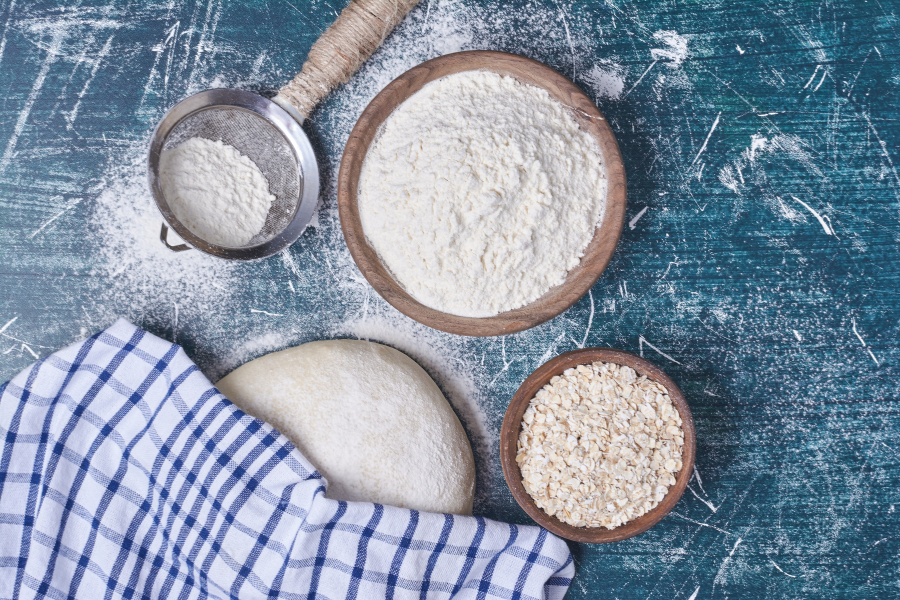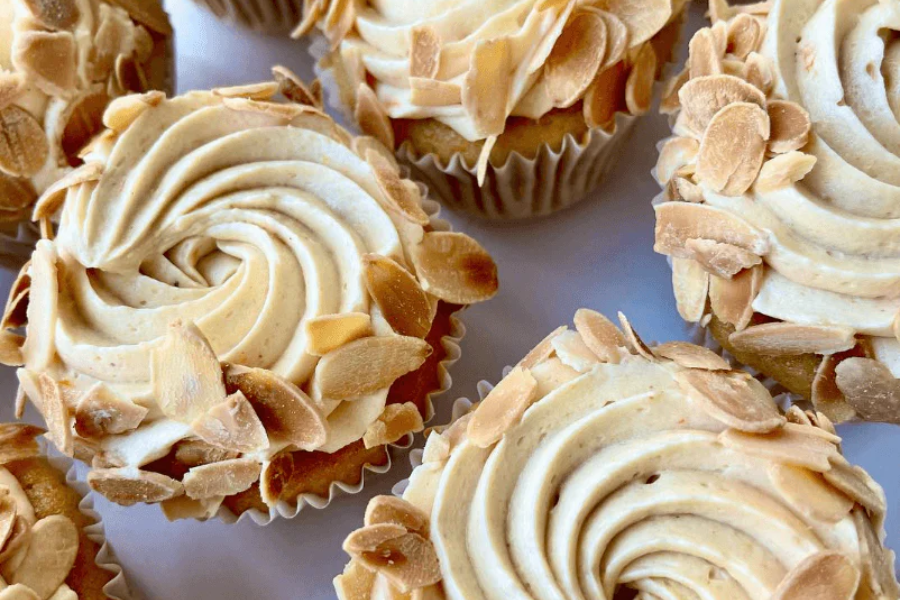The humble Christmas Cake. Whether you love it or hate it, you’ve got to admit that it is a staple of the festive season! But where did Christmas Cake come from, and who decided it was only to be eaten at Christmas time?
In this article, we will explore the history of the Christmas Cake, answering common questions such as ‘what is Christmas Cake’ and ‘why do you only eat Christmas Cake at Christmas’, as well as decode the English Christmas Cake recipe and compare it to other countries to see whether it differs at all.
What is Christmas Cake?
Christmas Cake is a deliciously rich, fruity festive treat, made from dried fruit, nuts and spices and often covered in thick layers of marzipan and royal or fondant icing. It is commonly given as a gift or used as a centrepiece at festive gatherings, and can be served on Christmas Day or eaten at any point during the Christmas season.
Preparing a Christmas Cake is a long, meticulous process that begins long before Christmas. Dried fruits and nuts are soaked in alcohol such as brandy for several days or even weeks to enhance their flavour. A cake batter using brown sugar is then made, with the addition of spices, before mixing in the soaked fruits and nuts. The cake is then baked ‘low and slow’ - at a low temperature for several hours in order to prevent burning.
After baking and cooling, the cake is usually stored for several weeks so that it can mature and continue to develop its flavours. To enhance it further, some bakers “feed” the sponge with additional alcohol during this period. Just before Christmas, the cake is covered with a layer of marzipan and then iced with royal icing or fondant, and decorated with festive decorations.
The history of the Christmas Cake
So where did Christmas cake come from? Well it actually started its journey in the Middle Ages as something quite different - plum porridge! The recipe for plum porridge is a hearty one, including a whole leg of beef boiled into stock, bread to thicken, and spices, dried fruits, plums, sugar and wine to sweeten.
Around the Sixteenth Century, the bread was replaced with eggs, butter and flour - turning it from a porridge into a cake.
The next evolution of the Christmas Cake came later in the Sixteenth Century. The celebration of the Twelfth Night, celebrated on the 5th of January, was commonly accompanied by an enriched fruit cake, similar in texture to Italian Panettone. However, these fruit cakes harboured a hidden secret - a pea or bean (or both), was often hidden inside the cake and the finder was crowned the King or Queen of the Twelfth Night party.
From 1860, Queen Victoria banned the annual celebration of Twelfth Night, as she regarded it unChristian, but the Twelfth Night fruit cakes soon became reinvented to Christmas Cakes. The hidden ‘goodies’ also disappeared, and Christmas Cakes became a way of boasting your wealth. Christmas cakes were topped with layers of marzipan or almond paste, and in the Eighteenth Century, royal icing. The more decorative and iced the cake, the richer you were.
How does English Christmas Cake compare to other Christmas cakes?
Eating a fruit cake at Christmas is not a solely English concept. In fact, many countries across the world enjoy a festive slice of fruit cake near Christmas. However, the ostentatious decoration is more common on British Christmas cakes than on European ones. In fact, most other countries that enjoy rich fruit cake during the festive season top them with little-to-no decoration, such as with a simple sugar icing glaze and chopped nuts.
What are some other festive fruit cakes?
As we’ve mentioned, fruit cake at Christmas is not only an English tradition. Lots of countries across the world, and especially in Europe, enjoy spiced fruit cakes at Christmastime. For example, the Italian version of Christmas Cake (and also something that us Brits love throughout December) is panettone. Similarly, the German equivalent is Stollen, a yeasted cake flavoured with spices, dried fruit, nuts and marzipan.
The festive fruit cake theme even travels as far as Japan, where Christmas Cake is a sponge cake filled and topped with cream and strawberries! We wouldn’t mind that trend making its way over here too!
How Gaya’s Cakes can help
If you’re looking for some festive treats that the whole family will like, then Gaya’s Cakes is here to help. We have a range of festive bakes in store at our bakery or for online order, including mince pies, gingerbread cupcakes and Christmas cake (by the slice or full cake!) Browse our collections of cakes, cupcakes and postal treats to treat your loved ones (or yourself) to this Christmas!
Looking for a bespoke cake to gift a special someone this festive season? We can help with that too! We are able to create bespoke designs that look as good as they taste for any occasion! Get in touch with us today to discuss your requirements.




